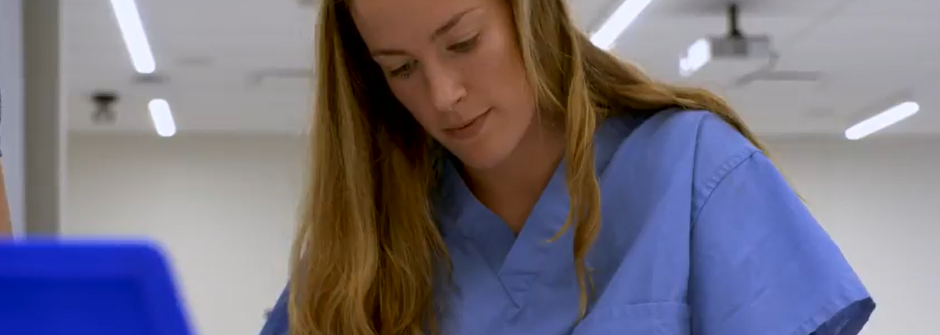
Accreditation and Outcomes
Master of Science in Physician Assistant Accreditation
Accredited by the Accreditation Review Commission on Education for the Physician Assistant, Inc. (ARC-PA), the Physician Assistant degree at Seton Hall University prepares practitioners with a depth of knowledge and judgment to perform as knowledgeable and highly skilled clinicians.
The Accreditation Review Commission on Education for the Physician Assistant (ARC-PA)
has granted Accreditation-Continued status to the Seton Hall University Physician Assistant Program sponsored by Seton Hall University. Accreditation-Continued is an accreditation status granted when a currently accredited
program is in compliance with the ARC-PA Standards.
Accreditation remains in effect until the program closes or withdraws from the accreditation
process or until accreditation is withdrawn for failure to comply with the Standards.
The approximate date for the next validation review of the program by the ARC-PA will
be March 2027. The review date is contingent upon continued compliance with the Accreditation Standards
and ARC-PA policy.
The program’s accreditation history can be viewed on the ARC-PA website.
Master of Science in Physician Assistant Outcomes
Students who graduate from an accredited program are eligible to sit for the national certification examination administered by the National Commission on the Certification of Physician Assistants (PANCE).
The PANCE pass rates for first-time takers, by year of graduation is available here.
The ARC-PA Student Attrition Template can be accessed here.
Master of Science in Physician Assistant Program Goals
The major goals of the Seton Hall University PA program are to:
Provide a high quality, comprehensive didactic education which ensures graduates possess the basic science and clinical knowledge to serve as an effective PA.
The primary outcome assessing PA program graduate knowledge is the PA National Certifying Examination.
- The program's five-year pass rate (99%) remains above the national pass rate (95%).
- Data from the National Commission on Certification of Physician Assistants indicates that 98% of program alumni maintain active certification as a PA.
Provide a wide range of clinical experiences to ensure that graduates have the broad patient exposure necessary to develop essential clinical skills.
The average length of a PA program is 27 months. The PA program at Seton Hall is 33 months in length with 14 of those months devoted to standardized clinical experiences.
- Seton Hall maintains affiliations with approximately 145 clinical sites for student placements. Sites range from urban clinics managing the health of underserved populations to suburban sites which work on a concierge care model.
- On average, students log over 1000 patient encounters during their clinical rotations.
- Student evaluations regarding the quality of our clinical preceptors are collected at the conclusion of each rotation. Evaluations have been collected electronically since 2008. On average our preceptors have been rated 4.54 out of 5 (90%).
Prepare graduates to function as competent entry-level PAs in diverse settings.
In addition to working in primary care specialties like family medicine, internal medicine, pediatrics and women's health, graduates work in fields including but not limited to:
- Cardiovascular surgery
- Dermatology
- Emergency medicine
- Endocrinology
- Gastroenterology
- General surgery
- Infectious disease
- Orthopedic surgery
- Otolaryngology
- Pain management
- Pediatric surgery
- Physical medicine and rehabilitation
- Plastic surgery
- Rheumatology
Foster an appreciation for interprofessional patient care.
Being housed in Seton Hall University's School of Health and Medical Sciences affords the PA program easy access to health professionals in fields such as athletic training, occupational therapy, physical therapy and speech language pathology. In 2014, the School of Health and Medical Sciences announced the development of a Center for Interprofessional Education in the Health Sciences.
- Didactic year coursework including anatomy and neuroscience is taken alongside students from other health disciplines.
- Faculty from the allied health disciplines lecture to students during the Fundamentals of Clinical Medicine course.
- All students participate in several school-wide interprofessional events where patient care is discussed from the perspective of different disciplines.
Afford students the opportunity to develop a foundation for competence in research.
As they progress through the research curriculum, students work in teams to develop a research question, design a study, collect and interpret data and draw a conclusion. Student findings are presented annually at the University's Petersheim Research Exposition.
PA Program Policies
Please note the following policies which are posted in accordance with the ARC-PA Standards. Please see the program handbook for additional details on these and other program policies.
- No student is required to provide or solicit clinical sites. The program is required to maintain sufficient placements to ensure all students can complete required rotations.
- No student is required to work for the program. There may be opportunities for students to work as graduate or teaching assistants; applying for these positions is completely voluntary.
- Students are not permitted to function as instructional faculty or administrative staff.
- Students are required to comply with CDC recommendations for immunizations and screening for healthcare providers.
- Program faculty are not permitted to serve as healthcare providers for students.
